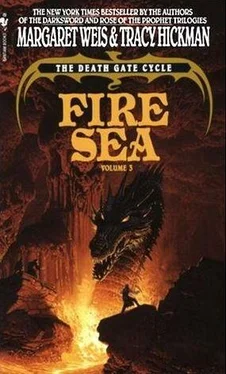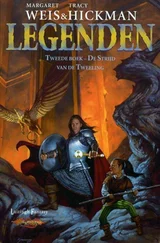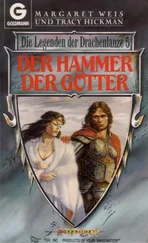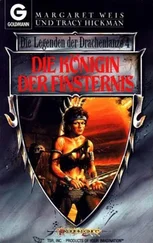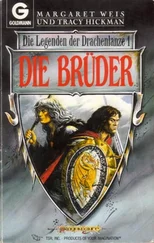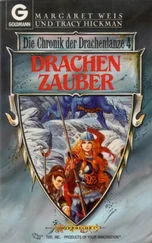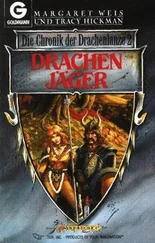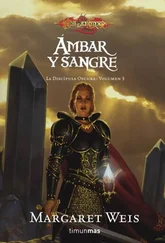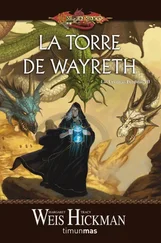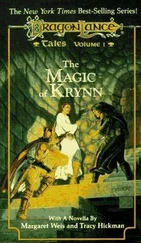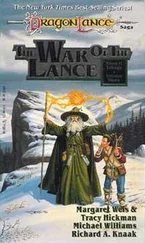Margaret Weis - Fire Sea
Здесь есть возможность читать онлайн «Margaret Weis - Fire Sea» весь текст электронной книги совершенно бесплатно (целиком полную версию без сокращений). В некоторых случаях можно слушать аудио, скачать через торрент в формате fb2 и присутствует краткое содержание. Жанр: Фэнтези, на английском языке. Описание произведения, (предисловие) а так же отзывы посетителей доступны на портале библиотеки ЛибКат.
- Название:Fire Sea
- Автор:
- Жанр:
- Год:неизвестен
- ISBN:нет данных
- Рейтинг книги:4 / 5. Голосов: 1
-
Избранное:Добавить в избранное
- Отзывы:
-
Ваша оценка:
- 80
- 1
- 2
- 3
- 4
- 5
Fire Sea: краткое содержание, описание и аннотация
Предлагаем к чтению аннотацию, описание, краткое содержание или предисловие (зависит от того, что написал сам автор книги «Fire Sea»). Если вы не нашли необходимую информацию о книге — напишите в комментариях, мы постараемся отыскать её.
Fire Sea — читать онлайн бесплатно полную книгу (весь текст) целиком
Ниже представлен текст книги, разбитый по страницам. Система сохранения места последней прочитанной страницы, позволяет с удобством читать онлайн бесплатно книгу «Fire Sea», без необходимости каждый раз заново искать на чём Вы остановились. Поставьте закладку, и сможете в любой момент перейти на страницу, на которой закончили чтение.
Интервал:
Закладка:
Of all the possible disasters those early ancestors of ours feared for us, they obviously didn’t foresee the worst of all. They never imagined that we would lose the magic.
Time and again we have been forced to make costly delays. We found the tunnel ceiling collapsed in many places, our way blocked by immense boulders that took us several cycles to move. Huge cracks gape in the floor, cracks that only the bravest dared jump, sacks that had to be bridged before the people could cross. And we are not out of the tunnels yet. Nor, does it seem, that we are near the end. I cannot judge our location precisely. Several major landmarks are gone, carried away by rock slides, or else have altered so over the years that it is impossible to recognize them. I am not even certain, anymore, that we are following the correct route. I have no way of knowing. According to the map, the ancients inscribed runes on the walls that could guide travelers, but—if so—their magic is now beyond our comprehension and use.
We are in desperate straits. Food rations have been cut in half. The flesh has melted from our bones. Children no longer cry from weariness; they cry from hunger. The carts have fallen by the wayside. Beloved possessions became burdens to arms grown weak from starvation and exhaustion. Only the carts needed to bear the elderly and the infirm remain in use and these carts, too, tragically, are beginning to litter the tunnels. The weak among us are starting to die now. My fellow necromancers have taken up their grim tasks.
The burden of the people’s suffering has fallen, as I knew it would, on the shoulders of their prince. Edmund watches his father fail before his eyes.
The king was, admittedly, an old man, by the standards of our people. His son was born to him late in life. But, when we left the palace, he was hale, hearty, strong as men half his age. I had a dream in which I saw the king’s life as a thread tied back to the golden throne that now stands in the cold darkness of Kairn Telest. As he walked away from the throne, the thread remained tied to it. Slowly, cycle by cycle, the thread is coming unraveled, stretching thinner and thinner the farther he moves from his homeland, until now I fear a harsh or clumsy touch will cause it to snap.
The king takes no interest in anything anymore: what we do, we say, where we are going. Most of the time, I wonder if he even notices the ground beneath his feet. Edmund walks constantly by his father’s side, guiding him like one who has lost the power of sight. No, that is not quite a correct description. The king acts more like a man walking backward, who does not see what lies ahead, only what he is leaving behind.
On the occasions when the prince is called away by his numberless responsibilities, and he must leave his father, Edmund makes certain that two soldiers are on hand to take over his task. The king is tractable, he goes where he is led without question. He moves when he is told to move, he stops when he is told to stop. He eats whatever is put into his hand, never seeming to taste it. I think he would eat a rock, if it were given to him. I also think he would stop eating altogether, if no one brought him food.
For long cycles, at the journey’s start, the king said nothing to anyone, not even to his son. Now, he talks almost constantly, but only to himself, never to anyone around him. Anyone that can be counted, that is. He spends a great deal of time talking to his wife—not as she is, among the dead, but as she was, when she was among the living. Our king has forsaken the present, returned to the past.
Matters grew so bad that the council begged the prince to declare himself king. Edmund rebuffed them, in one of the few times I have ever seen him lose his temper. The council members slunk away before his wrath like whipped children. Edmund is right. According to our law, the king is king until his death. But, then, the law never considered the possibility that a king might go insane. Such a thing doesn’t happen among our people.
The council members were actually reduced to coming to me (I must say that I relished the moment) and begging me to intervene with Edmund on behalf of the people. I promised to do what I could.
“Edmund, we must talk,” I said to him during one of our enforced stops, waiting while the soldiers cleared away a huge mound of rubble that blocked the path.
His face darkened, turned rebellious. I had often seen such a look when he was a youth and I had forced upon him the study of mathematics, a subject to which he never took. The look he cast me brought back such fond memories that I had to pause and recover myself before I could continue.
“Edmund,” I said, deliberately keeping my tone practical, brisk, making this a matter of common sense, “your father is ill. You must take over the leadership of the people—if only for the time being,” I said, raising my hand, forestalling his angry refusal, “until His Majesty is once more able to resume his duties.”
“You have a responsibility to the people, My Prince,” I added. “Never in the history of Kairn Telest have we been in greater danger than we are now. Will you abandon them, out of a false sense of duty and filiality? Would your father want you to abandon them?”
I did not mention, of course, that it was his father who had, liimself, abandoned the people. Edmund understood my implication, however. If I had spoken such words aloud, he would angrily deny them. But when they were spoken to him by his own conscience ...
I saw him glance at his father, who was sitting on a rock, chatting with his past. I saw the trouble and distress on Edmund’s face, saw the guilt I knew then, that my weapon had struck home. Reluctantly, I left him alone, to let the wound rankle.
Why is it always I, who love him, who must repeatedly cause him pain? I wondered sadly, as I walked away.
At the end of that cycle, Edmund called a meeting of the people and informed them that he would be their leader, if they wanted him, but only for the time being. He would retain the title of prince. His father was still king and Edmund confidently expected his father to resume his duties as king when he was well.
The people responded to their prince with enthusiasm, their obvious love and loyalty touched him deeply. Edmund’s speech did not ease the people’s hunger, but it lifted their hearts and made the hunger easier to bear. I watched him with pride and a newfound hope in my own heart.
They will follow him anywhere, I thought, even through Death’s Gate.
But it seems likely that we will find death before we will find Death’s Gate. The only positive factor we have encountered on our Journey thus far is that the temperature has, at least, moderated; growing somewhat warmer. I begin to think that we have been following the correct route, that we are drawing nearer to our destination—Abarrach’s fiery heart.
“It is a hopeful sign,” I said to Edmund, at the end of another bleak and cheerless cycle, traversing the tunnels. “A hopeful sign,” I repeated confidently.
What fears and misgivings I have, I am keeping to myself. It is needless to pile more burdens on those young shoulders, strong though they may be.
“Look,” I continued, pointing at the map, “you will note that when we come to the end of the tunnels, they open up on a great pool of magma, that lies outside. The Lake of Burning Rock, it is named—the first major landmark we would see on entering the Kairn Necros. I cannot be certain, but I believe it is the heat from this lake, seeping up through the tunnel, that we are feeling.”
“Which means that we are near the end of our journey,” Edmund said, his face—that has grown much too thin—lighting with hope.
“You must eat more, My Prince,” I said to him gently. “Eat at least your share. You will not help the people if you fall sick or grow too weak to go on.”
Читать дальшеИнтервал:
Закладка:
Похожие книги на «Fire Sea»
Представляем Вашему вниманию похожие книги на «Fire Sea» списком для выбора. Мы отобрали схожую по названию и смыслу литературу в надежде предоставить читателям больше вариантов отыскать новые, интересные, ещё непрочитанные произведения.
Обсуждение, отзывы о книге «Fire Sea» и просто собственные мнения читателей. Оставьте ваши комментарии, напишите, что Вы думаете о произведении, его смысле или главных героях. Укажите что конкретно понравилось, а что нет, и почему Вы так считаете.
